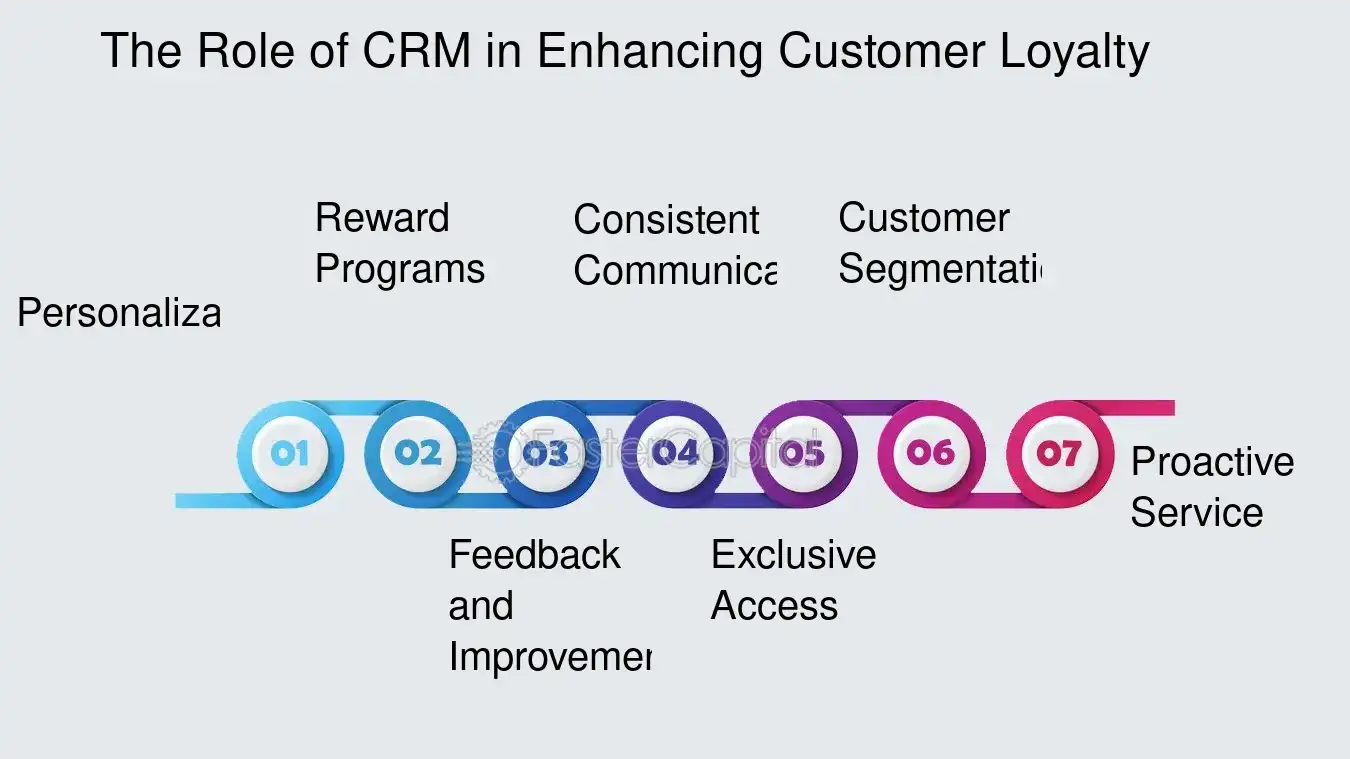Business
Unlocking SEO Success: A Comprehensive Guide to Boost Your Website’s Visibility

In the ever-evolving digital landscape, mastering the art of SEO is crucial for any website aiming to dominate the search engine rankings. At [TRADE-PALS.COM], we understand the importance of crafting content that not only engages your audience but also ensures high visibility on platforms like Google. In this comprehensive guide, we delve into the intricacies of SEO, providing you with actionable strategies to outrank your competitors.
Understanding the Dynamics of SEO
Search Engine Optimization (SEO) is the cornerstone of online success. To unlock the full potential of your website, it’s imperative to comprehend the intricate dance between algorithms and content relevance. Google, being the primary search engine, rewards websites that offer valuable, well-optimized content.
The Power of Keywords
Keywords are the linchpin of SEO. Our team at [TRADE-PALS.COM] specializes in meticulous keyword research, identifying the terms and phrases your target audience is searching for. By seamlessly integrating these keywords into your content, we ensure that your website aligns with the queries potential visitors are making.
Crafting Compelling Content: The Art of Engagement
While keywords lay the foundation, engaging content is the building block that keeps visitors coming back for more. At [Your Company Name], our team of expert writers focuses on creating content that not only satisfies search engine algorithms but also captivates your audience.
The Importance of Quality Content
Quality reigns supreme in the digital realm. Google’s algorithms have become increasingly sophisticated in recognizing and rewarding well-crafted, informative content. Our content creators are adept at producing articles that provide genuine value to your audience, establishing your website as an authoritative source within your niche.
Technical SEO: Behind the Scenes
Beyond engaging content lies the realm of technical SEO – the invisible force that propels your website to new heights.
Optimizing Site Structure
A well-structured website is not only user-friendly but also caters to search engine crawlers. Our team meticulously analyzes and optimizes your site structure, ensuring easy navigation for both users and search engine bots.
Speed Matters
In the fast-paced digital age, website speed is paramount. Slow-loading pages can result in high bounce rates and decreased rankings. [TRADE-PALS.COM] employs advanced techniques to optimize your website’s speed, providing a seamless user experience.
Building Backlinks: The Backbone of Authority
In the vast sea of online content, backlinks serve as endorsements of your website’s credibility. Our comprehensive backlink strategy focuses on acquiring high-quality, relevant backlinks from authoritative sources within your industry.
Outreach and Relationship Building
Building meaningful relationships within your industry is a key aspect of our backlink strategy. By engaging with influencers and thought leaders, we secure valuable backlinks that enhance your website’s authority in the eyes of search engines.
Analytics and Continuous Improvement
SEO is not a one-time endeavor; it’s an ongoing process of refinement and improvement. At [TRADE-PALS.COM], we leverage advanced analytics tools to monitor the performance of your website continually.
Data-Driven Decision Making
Our approach is grounded in data. By analyzing user behavior, search trends, and other key metrics, we make informed decisions to optimize your website for sustained success.
Strategies For Success
Choose niche keywords
Keywords are the words or phrases people type into search boxes when they’re looking for something, for example, “Brooklyn takeout” or “running trainers.” Google looks for keywords on your website and uses them to decide how relevant your content is to a specific search query. This means you need to choose keywords that align with your product or service and use them across your site.
To identify your keywords, consider what your business offers and what makes it unique. Since many other businesses will likely share the same ones, keep yours as niche as possible. The trick is finding keywords with low competition and high search volumes. Free tools like Google Keyword Planner will show you this data, as well as suggestions for alternative keywords.
Once you have your keywords, integrate them across your site in product descriptions, blogs, URLs, and page titles. Be sure to only use them where it makes sense to do so. Google will notice if you litter your pages with irrelevant keywords that jar the flow, and it will lower your ranking.
Write for humans, not bots
Search engines can quickly spot content that’s been written for them, rather than for humans. For example, if you overuse your keywords so that it damages readability, copy content from other websites, or have poorly researched articles that lack credibility, Google will notice.
Instead, search engines, like humans, love content that is unique, credible, and compelling. Where you can, hyperlink to other credible outlets, use high-quality sources, and link to other content on your own site.
Create a smooth user experience
Make your website easy to navigate, with logical menus, clear page titles, and URLs that actually tell you what the page is all about. For example, instead of “www.trainers.com/123abc,” opt for “www.trainers.com/white-running-trainers.” Consider using breadcrumb trails at the top of your pages. These give one-click access to other pages on your site, and they’re good for SEO as you can weave keywords into them: Home > Trainers > Men’s Trainers > White Running Trainers.
Other measures that support easy navigation are including simple wording in your menus, ensuring your buttons stand out in a bold color with a clear call to action, and putting your navigation in a standard place so that it’s consistent across your pages. Test your navigation using analytics tools such as Google Search Console or Hotjar, which can show you how users are clicking through your pages, so you can identify any areas of improvement.
In addition to simple navigation, a great user experience also means keeping your content up to date, linking to other relevant content on your own website, and removing or updating any broken links. Search engines and visitors alike will quickly give up if they can’t find what they’re looking for or if your website looks tired and dated.
Use videos and images
Visual content is becoming increasingly popular, with the average person estimated to spend 100 minutes every day watching online videos in 2021 — a 19% increase from 2019. It’s therefore no surprise that search engines love videos and images, too. But it’s not so much the content as the behavior it drives.
Visual content often triggers a deeper emotional response than words on a page. In fact, video click-through rates on search results are 41% higher compared to plain-text content. They’re easy to digest, engaging, accessible, and more likely to be shared, with some 92% of mobile video consumers sharing videos with others. This means people are likely to spend more time on your web pages. Search engines pick up on all these factors and consider your content to be valuable, boosting your ranking.
Conclusion:
In conclusion, mastering the intricacies of SEO requires a holistic approach that encompasses keywords, content quality, technical optimization, and strategic backlinking.
Business
Crafting Customer Loyalty: The Power of Personalized CRM Experiences

You’re a business owner looking to boost customer retention and satisfaction. But how can you create personalized experiences that keep your customers coming back? This article explores the world of CRM solutions, focusing on how they can help you craft tailored experiences that drive loyalty. We’ll dive into the benefits of CRM systems, highlight key players in the industry and provide practical tips for implementation.
In today’s competitive business landscape, customer loyalty is more crucial than ever. As companies strive to differentiate themselves, personalized experiences have become a key factor in retaining customers and fostering long-term relationships. Customer Relationship Management (CRM) solutions offer powerful tools to achieve this goal, enabling businesses to create tailored interactions that resonate with their audience.
The Power of Personalization
Personalization is no longer a luxury – it’s an expectation. Customers want to feel valued and understood, and CRM systems provide the means to deliver on these expectations. By leveraging data and insights, businesses can craft experiences that speak directly to individual preferences and needs.
One company leading the charge in this area is Lime Technologies. Their innovative CRM solutions Lime Technologies have helped countless businesses transform their customer relationships. With a focus on user-friendly interfaces and powerful analytics, Lime Technologies has become a go-to CRM leverantör for companies across Sweden and beyond.
Unlocking the Potential of CRM
CRM systems offer a wealth of benefits for businesses looking to enhance customer loyalty:
- Centralized Customer Data: By consolidating customer information in one place, CRM systems enable businesses to gain a 360-degree view of their clients. This comprehensive understanding allows for more informed decision-making and targeted communications.
- Automated Processes: CRM solutions streamline workflows, freeing up time for employees to focus on building relationships rather than managing administrative tasks. This efficiency boost can lead to improved customer satisfaction and loyalty.
- Predictive Analytics Advanced: CRM systems, like those offered by CRM företag such as Lime Technologies, use AI and machine learning to predict customer behavior and preferences. This insight allows businesses to proactively address customer needs and anticipate future trends.
Implementing CRM for Success
To maximize the benefits of CRM solutions, consider the following tips:
- Choose the Right System: Select a CRM system that aligns with your business needs and goals. Companies like Lime Sverige offer a range of options tailored to different industries and company sizes.
- Invest in Training: Ensure your team is well-versed in using the CRM system. Many providers, including Lime Stockholm, Lime Göteborg and Lime Lund, offer comprehensive training programs to help businesses get the most out of their CRM investment.
- Integrate Across Channels: For a truly personalized experience, integrate your CRM system across all customer touchpoints. This holistic approach ensures consistency and continuity in customer interactions.
The Future of CRM
As technology continues to evolve, so too do CRM solutions. Svenska CRM system providers like Lundalogik Lime CRM are at the forefront of innovation, developing new features and capabilities to meet the changing needs of businesses and customers alike.
From AI-powered chatbots to advanced data analytics, the future of CRM promises even greater opportunities for personalization and customer engagement. By staying ahead of these trends and leveraging the power of CRM solutions, businesses can create lasting customer loyalty and drive long-term success.
In the end, crafting personalized experiences through CRM is about more than just technology – it’s about building meaningful connections with your customers. By harnessing the power of CRM solutions, businesses can create experiences that resonate, engage and ultimately foster lasting loyalty.
Business
Why Metal Bending is Key to Efficient Sheet Metal Fabrication

For several reasons, the bending process is essential to effective sheet metal manufacturing. Sheet metal bending has several benefits that improve output, economy, and product quality, regardless of the project’s complexity—it could be simple brackets or intricate car components.
1. Cost-Effective Production
With sheet metal bending, manufacturers may build complex forms out of a single metal sheet without having to weld or glue many sections together. By doing this, assembly pieces are kept to a minimum, which lowers production time and material costs. Manufacturers can save production costs and turnaround times by bending a sheet into the desired shape rather than cutting and assembling individual sections.
Additionally, sheet metal bending is now more efficient than ever because of developments in automation and CNC (Computer Numerical Control) technology. For example, automated press brakes can handle exact bends with little assistance from a human, saving labor expenses and eliminating mistakes made during manufacturing. Consistent outcomes are guaranteed by this degree of automation, which is crucial for businesses that depend on mass production.
2. Enhanced Design Flexibility
The design flexibility that sheet metal bending provides is another factor that makes it essential for effective manufacture. Modern bending machinery makes it easy for producers to generate elaborate curves and multi-angled components, among other complex designs. Businesses are able to quickly prototype new designs and satisfy a wide range of client requests because of this degree of flexibility.
For instance, delicate components are housed in bent metal enclosures in the electronics sector. For these enclosures to fit well and offer sufficient protection, they must be precisely made. Customized designs that adhere to precise standards are made easier by the ability to bend metal into precise, intricate shapes.
Additionally, sheet metal bending accommodates a variety of material thicknesses, allowing producers to deal with thin, light sheets for applications where strength must be maintained but weight must be decreased. This is especially crucial in sectors like aircraft, where weight loss is essential to effectiveness and performance.
3. Structural Integrity and Durability
The preservation of the material’s structural integrity during the fabrication process is guaranteed by the bending of sheet metal. When bending is done properly, the material is strengthened along the bent lines, improving its resistance to stress and fatigue as well as its overall longevity. This is particularly crucial for sectors like construction and the automotive industry that demand sturdy components.
For instance, sheet metal bending is used by automakers to make chassis parts, body panels, and brackets that can resist normal wear and tear. These parts are made sturdy and resistant to bending or breaking under stress by the bending process, which results in automobiles that last longer and require less maintenance.
Modern bending processes provide precision and uniformity, which enhance the overall quality of the manufactured product. Manufacturers can create products with precise tolerances and dimensional accuracy thanks to the technique’ low material distortion, which lessens the need for secondary steps like trimming or reworking.
4. Reduced Waste and Sustainability
Sheet metal bending is a big part of cutting waste in an era where manufacturers are starting to prioritize sustainability. Unlike other fabrication techniques like laser cutting or stamping, this procedure produces little to no scrap because it doesn’t require cutting or removing material. This reduces the need for waste disposal and conserves raw materials, both of which lead to a more sustainable production process.
Furthermore, by reducing excess, producers can optimize material utilization through the application of sophisticated bending techniques. For example, producers may guarantee that the metal sheet is used efficiently and lower the possibility of errors that could result in trashed components by properly estimating the needed bend radius and angles.
5. Widespread Applications Across Industries
Given its adaptability, sheet metal bending is a crucial procedure in many different sectors. Manufacturers may produce parts with exceptional precision and durability using the bending process, whether they are utilized to construct parts for consumer electronics, medical equipment, or industrial gear.
For instance, sheet metal bending is utilized in the aerospace sector to make robust and lightweight parts for engine mounts, wings, and fuselages of aircraft. The success of the finished product depends on the precision of the bending process because these parts must adhere to strict safety and performance standards.
Bent metal sheets are used in the building industry for structural frames, cladding, and roofing. Architects and engineers can design buildings with distinctive features while preserving the strength and structural integrity of the structure because metal can be bent into precise shapes.
Conclusion
A key approach for productive sheet metal services is sheet metal bending, which enables producers to design intricate, long-lasting, and reasonably priced components. The method is crucial to the success of many different businesses since it provides substantial benefits in terms of design flexibility, structural integrity, and sustainability.
Manufacturers can achieve strict performance criteria, streamline production processes, and minimize waste by utilizing the capabilities of contemporary bending equipment. Sheet metal bending will continue to be a crucial component of productive and sustainable production as long as industries continue to change and call for more creative solutions.
Marketing
Skipene Secrets Revealed to Boost Your Productivity

In a world where productivity is king, finding innovative ways to optimize your workflow can feel like searching for a needle in a haystack. Enter “skipene”—a term that might sound unfamiliar, but one that holds the potential to revolutionize how you approach tasks and time management. In this blog post, we’ll uncover the skipene phenomenon, demystify its applications, and provide actionable strategies to harness its power in your everyday life.
By understanding skipene, you’ll unlock new levels of efficiency and creativity, paving the way for a more balanced and fulfilling professional and personal life. Whether you’re a busy professional, a student juggling multiple responsibilities, or someone simply looking to make the most of your time, skipene could be the key you’ve been seeking.
Get ready to explore the concept of skipene, its roots, and the benefits it offers. We’ll guide you through practical tips to implement skipene in various scenarios, supported by real-life examples and expert insights. By the end of this post, you’ll have a comprehensive understanding of how to make skipene work for you and transform your productivity game.
What is Skipene?
Skipene is a term that refers to a unique approach to task management and prioritization. At its core, skipene emphasizes the art of selective focus, enabling individuals to concentrate on high-impact activities while minimizing distractions. This approach is particularly valuable in today’s fast-paced world, where information overload and constant interruptions can hinder productivity.
The origins of skipene can be traced back to time management principles, but it distinguishes itself by advocating for a more intentional and strategic allocation of time and energy. Rather than attempting to tackle every task on your to-do list, skipene encourages you to identify and prioritize activities that align with your goals and values.
One of the key aspects of skipene is its adaptability. Whether you’re working on a major project, planning your day, or simply trying to improve your work-life balance, skipene can be tailored to suit your specific needs and objectives. By integrating skipene into your daily routine, you’ll be better equipped to manage your time, reduce stress, and achieve your desired outcomes.
The Science Behind Skipene
To fully appreciate the power of skipene, it’s essential to understand the cognitive processes that underpin it. At the heart of skipene lies the concept of cognitive load, which refers to the amount of mental effort required to perform a task. By harnessing skipene, individuals can optimize their cognitive load, allowing for improved focus, decision-making, and problem-solving.
Research has shown that our brains are not designed for multitasking. In fact, attempting to juggle multiple tasks can lead to decreased productivity and increased errors. Skipene addresses this challenge by encouraging individuals to concentrate on one task at a time, thereby reducing cognitive load and enhancing overall performance.
Another scientific principle that supports skipene is the Pareto Principle, also known as the 80/20 rule. This principle suggests that 80% of our results come from 20% of our efforts. By focusing on high-impact tasks, skipene helps individuals maximize their output while minimizing unnecessary work. This approach not only boosts productivity but also fosters a sense of accomplishment and motivation.
The Benefits of Skipene
Adopting a skipene mindset can yield a multitude of benefits, both personally and professionally. One of the most significant advantages is the ability to enhance focus and concentration. By prioritizing essential tasks and eliminating distractions, skipene empowers individuals to work more efficiently and effectively.
Skipene also promotes better time management. By honing in on high-priority activities, individuals can allocate their time more strategically, ensuring that they make progress toward their goals. This approach not only boosts productivity but also leads to a greater sense of control and fulfillment.
Furthermore, skipene encourages a healthier work-life balance. By streamlining tasks and reducing the mental clutter associated with constant multitasking, individuals can create more time for self-care, relaxation, and meaningful connections. This holistic approach to productivity fosters overall well-being and satisfaction.
Implementing Skipene in Your Daily Routine
Integrating skipene into your daily routine doesn’t require a complete overhaul of your current practices. Instead, it involves making small, intentional adjustments that can have a big impact on your productivity and well-being. One effective strategy is to start each day by identifying your top three priorities. These should be tasks that align with your goals and will have the most significant impact on your progress.
Once you’ve identified your priorities, create a schedule that allocates dedicated time blocks for each task. During these time blocks, eliminate any distractions and focus solely on the task at hand. This practice, known as time blocking, is a core component of skipene and can significantly enhance your ability to concentrate and complete tasks efficiently.
In addition to time blocking, consider incorporating regular breaks into your schedule. Research has shown that taking short breaks throughout the day can boost productivity and creativity. Use these breaks to recharge, reflect, or engage in activities that bring you joy. By balancing focused work with moments of relaxation, you’ll be better equipped to maintain your energy and motivation throughout the day.
Skipene in Action: Real-Life Examples
To illustrate the power of skipene, let’s explore some real-life examples of individuals who have successfully integrated this approach into their lives. Meet Emily, a marketing manager who struggled with managing her workload and meeting deadlines. By adopting skipene, Emily began prioritizing her most critical tasks and allocating specific time blocks for focused work. This shift not only improved her efficiency but also reduced her stress levels and enhanced her overall job satisfaction.
Another example is Alex, a college student juggling coursework, part-time work, and extracurricular activities. By applying skipene principles, Alex learned to prioritize her academic responsibilities and allocate time for studying and assignments. This approach allowed her to achieve better grades while maintaining a healthy work-life balance.
These examples demonstrate that skipene is not a one-size-fits-all solution. Instead, it’s a flexible approach that can be tailored to suit individual needs and circumstances. By experimenting with different strategies and finding what works best for you, you can unlock the full potential of skipene and achieve your desired outcomes.
Overcoming Common Challenges with Skipene
While skipene offers numerous benefits, it’s important to acknowledge that implementing this approach may come with its own set of challenges. One common obstacle is the difficulty of letting go of the multitasking mindset. For many individuals, the habit of juggling multiple tasks simultaneously is deeply ingrained. To overcome this challenge, practice mindfulness and cultivate self-awareness. By staying present and focused on the task at hand, you can gradually break free from the multitasking cycle.
Another challenge is the fear of missing out (FOMO). In a world where opportunities and information are constantly at our fingertips, it’s natural to feel apprehensive about narrowing your focus. To address this concern, remind yourself of the long-term benefits of skipene and trust in your ability to make informed decisions. By prioritizing tasks that align with your goals, you’ll be better positioned to achieve meaningful and lasting success.
Finally, consistency can be a hurdle when integrating skipene into your routine. To build lasting habits, start small and gradually increase the complexity of your skipene practice. Celebrate your progress along the way and remain patient with yourself as you develop new skills and strategies.
Cultivating a Skipene Mindset
Developing a skipene mindset involves more than just adopting new practices—it’s also about shifting your perspective on productivity and success. At the heart of skipene is the belief that less can be more and that quality often trumps quantity. By focusing on high-impact tasks and minimizing distractions, you can achieve greater results with less effort.
To cultivate a skipene mindset, begin by reevaluating your goals and values. Reflect on what truly matters to you and identify the tasks and activities that align with your vision. This clarity will serve as a guiding compass as you navigate your skipene journey.
Additionally, practice gratitude and celebrate your achievements, no matter how small. Recognize that progress is a process, and every step forward is a victory. By fostering a positive and growth-oriented mindset, you’ll be more resilient in the face of challenges and better equipped to harness the power of skipene.
Skipene Tools and Resources
While skipene is primarily a mindset and approach, there are several tools and resources that can support your skipene practice. Consider using productivity apps and software that facilitate time blocking, such as Todoist, Trello, or Google Calendar. These tools can help you organize your tasks, set reminders, and track your progress.
In addition to digital tools, explore books and articles that offer insights and strategies related to skipene principles. Some recommended reads include “Deep Work” by Cal Newport, “The One Thing” by Gary Keller, and “Atomic Habits” by James Clear. These resources can provide valuable guidance and inspiration as you continue your skipene journey.
Finally, connect with like-minded individuals who share your commitment to productivity and personal growth. Join online forums, attend workshops, or participate in mastermind groups to exchange ideas, experiences, and support. By building a supportive community, you’ll be better equipped to stay motivated and accountable as you cultivate skipene in your life.
Measuring the Impact of Skipene
To fully appreciate the benefits of skipene, it’s essential to regularly assess its impact on your productivity and well-being. Begin by setting specific, measurable goals that align with your skipene practice. These goals could relate to work performance, personal development, or overall life satisfaction.
Track your progress over time and identify any patterns or trends that emerge. This data can provide valuable insights into the effectiveness of your skipene strategies and highlight areas for improvement. By regularly evaluating your progress, you’ll be better equipped to refine your approach and make informed decisions.
In addition to quantitative metrics, consider reflecting on qualitative aspects of your skipene experience. How do you feel about your work-life balance? Are you more focused and motivated? Do you experience greater fulfillment and satisfaction in your daily activities? These reflections can offer valuable insights into the holistic benefits of skipene and guide your ongoing practice.
Conclusion
In today’s fast-paced world, the ability to optimize productivity and manage time effectively is more important than ever. Skipene offers a powerful approach to achieving these goals, empowering individuals to focus on high-impact tasks, reduce distractions, and cultivate a more balanced and fulfilling life.
By understanding the principles of skipene and integrating them into your daily routine, you can unlock new levels of efficiency, creativity, and well-being. Whether you’re a busy professional, a student, or someone seeking greater work-life balance, skipene provides a flexible and adaptable framework to help you achieve your desired outcomes.
Remember that skipene is a journey, not a destination. Be patient with yourself as you explore new strategies and build lasting habits. Celebrate your progress along the way and remain open to growth and learning. With skipene as your guide, you have the power to transform your productivity game and create a life that aligns with your values and aspirations.
1. What is skipene?
Answer:
Skipene is a productivity approach that emphasizes focusing on high-impact tasks while minimizing distractions. It’s founded on the principle that quality is more important than quantity, encouraging individuals to achieve more by doing less.
2. How can I start incorporating skipene into my daily routine?
Answer:
Begin by identifying your goals and the tasks that align with them. Implement time-blocking techniques using productivity apps and gradually develop habits that reinforce the skipene mindset. Start small, and build complexity over time to integrate skipene effectively.
3. What tools and resources are recommended for practicing skipene?
Answer:
Tools like Todoist, Trello, and Google Calendar can help organize tasks and time efficiently. Additionally, books such as “Deep Work” by Cal Newport and “Atomic Habits” by James Clear offer valuable insights to guide your skipene journey.
4. How can I measure the success of my skipene practice?
Answer:
Set specific measurable goals and track your progress regularly. Assess both quantitative metrics, such as task completion rates, and qualitative reflections, like improvements in work-life balance or personal satisfaction, to gauge skipene’s overall impact.
5. Can skipene benefit anyone, or is it suited to specific individuals?
Answer:
Skipene is versatile and can benefit anyone seeking improved productivity and balance. Whether you’re a professional, a student, or someone seeking a more fulfilling life, skipene can provide a flexible framework to help achieve personal and professional success.
-

 Marketing6 months ago
Marketing6 months agoUnlocking the Potential of FSI Blogs: A Comprehensive Guide
-

 Health8 months ago
Health8 months agoAnxiety: Causes and Solutions
-

 Blog9 months ago
Blog9 months agoThe Seating Arrangement Surprise: A Story About Sitting Next to a Scary Yakuza
-

 Blog9 months ago
Blog9 months agoUnderstanding Chancerne: Unveiling the Science Behind this Enigmatic Phenomenon
-

 Tech7 months ago
Tech7 months agoOprekladač: A Comprehensive Guide to AI Translation Technology
-

 Tech8 months ago
Tech8 months agoUnveiling the Wonders of divijos: Revolutionizing Our World
-

 Health7 months ago
Health7 months agoDiscover the World of Ztec100.com: Your Ultimate Guide to Tech, Health, and Insurance
-

 Business9 months ago
Business9 months agoUnderstanding Trading: Unveiling the Dynamics of Financial Markets





